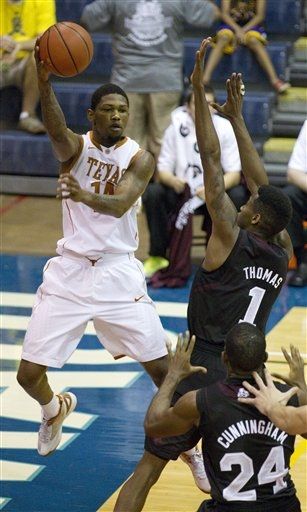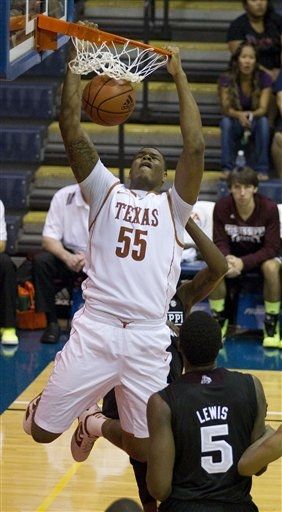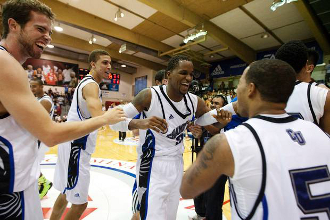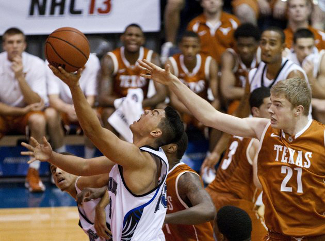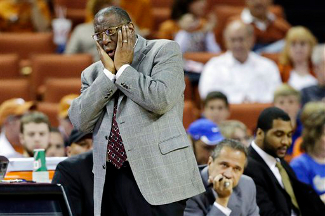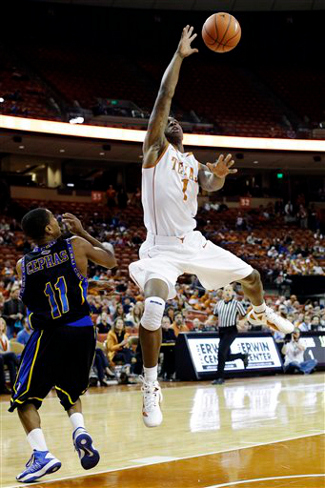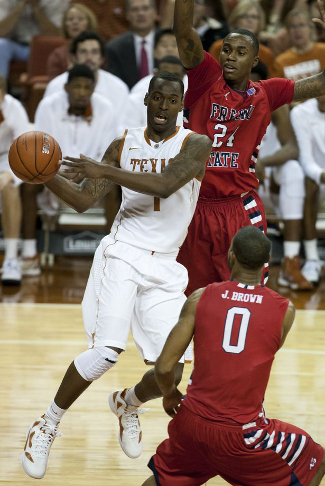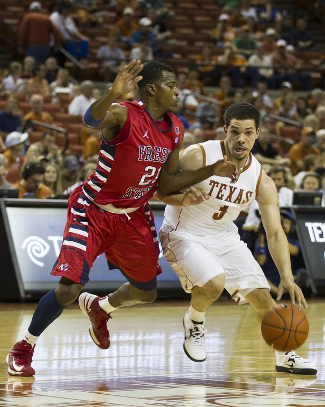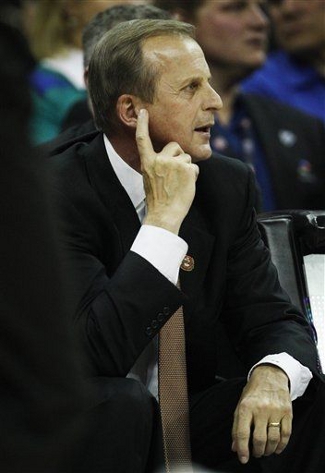It took three days, but the Texas Longhorns were finally able to earn a victory in the Maui Invitational, knocking off Mississippi State to take seventh place in the tournament. After an embarrassing loss to Division II host Chaminade and a narrow overtime defeat at the hands of USC, Texas came out of the gate with renewed energy and more of an offensive identity on Wednesday morning.
Julien Lewis has come on strong in his last two games What looked good Julien Lewis fueled the Longhorns from the opening tip, knocking down a pair of three-pointers in the first 2.5 minutes. Starting late in the USC loss, the Longhorns worked hard to free up Lewis, setting staggered screens to lose his defender. In the corner, at the elbow, and coming off of curls, Julien was consistently knocking down his shot. Against the Bulldogs, he finished 6-of-10 from the field. In his last two games, the sophomore made 66.7% of his shots. Using Lewis as an off-the-ball shooter in the mold of former Horn A.J. Abrams is a welcome development. Last season, he would often try to create his own shots off the bounce, and he typically struggled to find any consistent success. With most of his makes coming off of catch-and-shoot situations in Maui, Lewis’ driving game improved, as well. On one particular bucket, the defender rushed out to challenge the shot, and Julien blew past him on the baseline for an easy finish. Sheldon McClellan came off the bench for a second-straight game, but he responded to the challenge this time. While McClellan was clearly frustrated by the physical nature of the USC game and the tight defense the Trojans threw at him, he fought through the contact against Mississippi State. Sheldon knocked down more than 50% of his shots against the Bulldogs, and that offensive success helped him to stay more keyed-in on the defensive end. Two of McClellan’s buckets came on the exact same baseline out-of-bounds play, and Mississippi State coach Rick Ray was screaming across the court to his defense when the Longhorns lined up to run it a third time. The Bulldogs still didn’t deny McClellan the ball, but he didn’t score easily that time around. Later, on the fourth attempt, Mississippi State finally stuck with the sophomore and forced the Longhorns to go to another option on the inbounds.
Cameron Ridley had his best game as a Longhorn Freshman big man Cameron Ridley had the best game of his young career, just missing a double-double with eight points and 12 rebounds. He also led the Texas interior defense, swatting five of the 12 shots that the Horns blocked on the day. Ridley was confident and strong with the basketball inside, going up strong after most offensive rebounds, and making quick decisions when being fed in the post. Prince Ibeh was also a big part of Texas’ formidable interior defense, blocking three shots of his own. When Ibeh and Ridley played together, it was almost unfair. While one provided steady on-ball defense, the other would come over to clean up the challenged shot. Ibeh still has a long way to go on the offensive end, and looks genuinely panicked at times when trying to post up. Still, his defense against Mississippi State and for most of the USC game will give fans and coaches a glimpse of the potential he has to alter the game inside. What needed work As it has been all season, the biggest issue for the Longhorns was a rash of turnovers. Although Lewis had an excellent shooting day, he coughed it up eight times, including one instance where he simply lost his dribble on the wing and just watched it bounce out of bounds. Texas continued to throw questionable passes and made lazy ones on the perimeter. For the game, Texas posted its second-worst turnover rate of the season, ending 34.1% of their possessions with a miscue. Mississippi State took full advantage of these mistakes, scoring 20 points off of turnovers. Although that didn’t make a difference in this game, a late turnover and fast-break dunk led to overtime and a loss against USC. Texas did a good job forcing quite a few Mississippi State turnovers, which mitigated their own mistakes. But against tougher competition, those errors are going to result in losses. Many of those mistakes came on transition opportunities where the Longhorns waited too long to make decisions and didn’t keep spacing coming down the court. Players often got themselves just a few feet from the rim before trying to make a decision, sometimes already airborne. Passes were thrown behind teammates, they were thrown when teammates weren’t expecting them, and multiple opportunities were wasted. This Texas team is very athletic and will need to score often in transition this season, but the youngsters clearly need to get some more reps in order to improve their decision-making skills on the break. Demarcus Holland saw a major increase in minutes against USC and Mississippi State, but struggled when tasked when running the offense. He did knock down a nice pull-up jumper against the Bulldogs, but typically was far too loose with his dribble when trying to slice down the lane. Holland will learn how to adjust his pace as he plays more minutes, but right now he seems to only attack at one speed. Defensively, you can see that he buys into the system and is constantly thinking, aware of where he is in relation to the ball and his teammates. However, in one-on-one situations, Holland played too tightly on guards that he could not keep in front of him. USC’s Jio Fontan was able to easy shake Holland and get to the rim on two occasions, while Ibeh had to bail out Holland with a block on one play against Mississippi State. If Holland can’t rapidly improve his lateral quickness, he needs to recognize his own limitations and scale back the pressure just a bit. Ioannis Papapetrou also played quite a few minutes at the point, giving Javan Felix a nice breather in the team’s third game in three days. Mississippi State did a very poor job turning away Papapetrou’s drives down the lane, giving up some easy finishes at the rack. However, the offense lacked off-the-ball motion when he was at the point, so the second unit will need to avoid ball-watching when he’s running the show. If Myck Kabongo is reinstated soon, this will likely not matter much this season. On the other hand, if he’s deemed ineligible and Papapetrou becomes the backup point by default, the second unit cannot be a one-man show. Up next: vs. Sam Houston State; 7 P.M., Tuesday |








